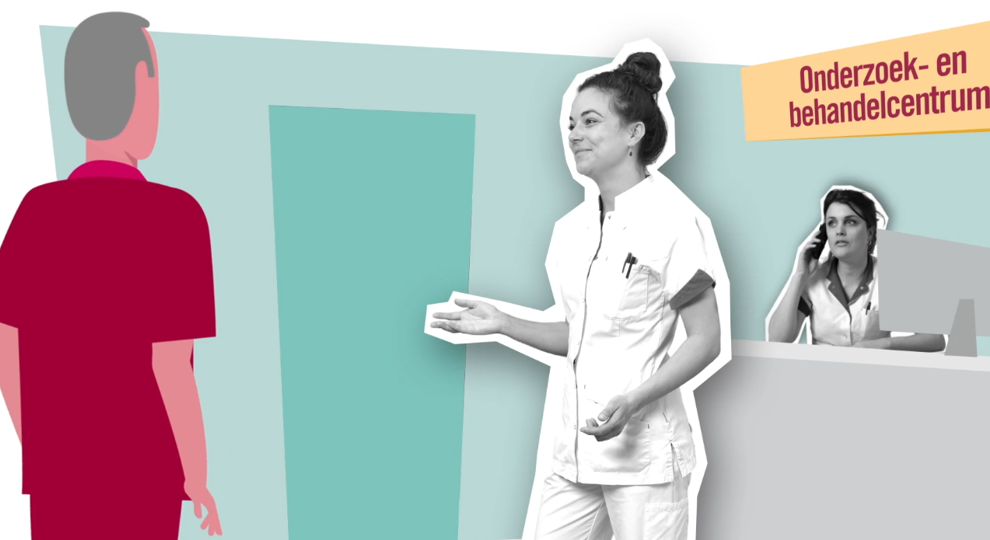Colonoscopy
A colonoscopy is an examination of the large intestine (colon) that is performed at the Diagnostics and Treatment Center (OBC). Your physician will use an endoscope, a long tube with a camera, to enter the colon through the back passage.
Further examinations
If necessary, we can use a special tube to take tissue biopsies for further analysis at the lab.

Colonoscopy: what to expect?
What to expect
A colonoscopy - how does it work?
You will be lying on your left side on the exam table, with your lower body uncovered.
Your doctor will insert the scope through your back passage, slowly moving it upwards towards the intestine. This may cause discomfort, and you may need to change positions to allow the tube to continue towards the colon. We will inflate the colon by pumping air into it for a better view of the lining.
If we see anything that may need to be analyzed, we will take a tissue biopsy using a special instrument. This will not hurt.
Preparations
Your intestines will need to be empty and “clean” before the procedure. We will send you a special diet plan, laxatives, and a colon cleansing solution before your consultation. Please make sure to follow all instructions carefully.
One of our healthcare professionals will discuss the procedure and the preparations with you. He or she will also look at your list of medications to see which ones you can continue to take before the procedure.
We recommend bringing someone along who can take you home safely.
After the procedure
If your doctor did not find any abnormalities, you will receive your results immediately. If tissue biopsies were taken, you will receive the results of the analysis after approximately 10 weekdays. We will schedule a consultation with you to discuss the results at the clinic.
You may experience abdominal cramping or blood loss after the procedure. This should not last long. If the pain gets worse, please contact your doctor right away.
 nl
nl
 Nederlands (Nederland)
Nederlands (Nederland)
 English (United States)
English (United States)